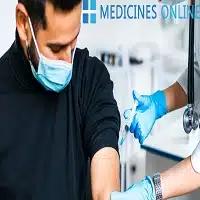
The genitals are not the only parts affected by sexually transmitted infections. STIs can affect various areas of the body. The most common areas include mouth, nose, tongue, throat, eyes, butt, rectum, etc. Others, like hepatitis B and HIV, are passed through the blood. Sampling and Testing are crucial to perform often to confirm your health status. If the results of the genital STI Check come up negative, it means you don’t have any genital sexual infection. However, it is also vital to get checked for non-genital STIs, especially if you have been in contact with someone infected. Let us explore non-genital infections and why comprehensive STD Checks are essential.
Depending on many factors, getting an infection in multiple locations on your body is possible. The infection affects the exposed areas; without protection, you risk getting even herpes simplex virus around the anus and mouth. Sometimes, treating genital sexually transmitted diseases clears up non-genital ones.
What If an Infection Is Not Treated?
It is recommendable to get treatment when you see the signs or think you have been exposed to a sexually transmitted disease. The minimal damage will inhibit the infection from spreading or developing to a more severe stage. However, the impacts of untreated STDs depend on the infection. Gonorrhea also spreads throughout the body and causes pain. It might also cause pelvic inflammatory illness and infertility.
Various kinds of human papillomavirus don’t just infect the genital parts but can also infect the mouth and throat. An infection like Syphilis also damages internal organs like nerves, eyes, and brain and may cause paralysis and blindness.
Getting Treatment
STD Checks involve giving blood samples, swabs or urine samples. These assessments are vital to know your status and the type of infection you have acquired. Furthermore, they help administer treatment and monitor how the body responds to treatment. All infections transmitted sexually are curable or treatable. Ensure you know how to protect yourself from getting an STD since preventing it is always better than treating the infection. Frequent use of at-home STD Test kits is vital to ascertain your health status, and you can always get treatment as soon as possible. Begin by learning your status and that of your partners. Other ways of preventing the transmission of non-genital and genital sexual infections include wearing protection, using lube and preventive medication.
Can Sexual Diseases Spread Through Oral Sex?
It is possible to get an infection during oral sex since some infections are non-genital. For instance, infections such as gonorrhoea and genital herpes affect other body parts besides the genital areas. The main STDs spread through oral sex include:
Can be Detected?
Gonorrhea is a highly contagious sexually transmitted infection that can be spread orally. Many infected people don’t see the symptoms, although you might experience them depending on their severity. The symptoms include genital discharge, itching when passing urine, pain when passing bowel, white or yellowish discharge from the penis and bleeding between menstrual periods. The good news is that the infection is treatable but causes severe complications like infertility and pelvic inflammatory disease if not treated. Thus, diagnose it early with STD Checks at home.
Virus Kits
Genital herpes infection spreads through anal, oral or vaginal contact with a person who has an active infection. It is highly contagious, especially during its active stage. The main symptoms include sores that look like blisters on the genitals, which can also spread to the buttocks and thighs, sometimes appearing on the mouth, lips, and tongue. You can get checked with a Herpes home kit as a cost-effective and easy-to-use result method.
It is even worse if someone does not cover the sores during direct contact. Oral herpes easily spreads to a sexual partner through oral sex. Someone with herpes can go for many years without a sores outbreak. That is why experts insist on STI profile kits. The disease is not curable, but there are effective medications to control its symptoms.
AIDS: Checks are Helpful
It’s critical to note that Syphilis is a bacterial infection that can spread through oral, penile, vaginal, anal and skin contact with sores. The worst thing is the sores are unseen due to their small size. This makes testing the only thing to help ascertain if you have Syphilis. The infection is treatable but can cause organ failure, dementia and other critical complications. You can notice small sores that resemble blisters when the disease is in its early stages. As it develops, it causes rashes and harms other organs.
HIV is a virus in body fluids like semen, milk, vaginal fluids, etc. A person contracts the disease by contacting the fluids that enter their bloodstream. HIV can spread through contact with an infected person’s open wound, blood, and mucous membrane. The condition leads to infections and illnesses since the body cannot defend itself. However, it is essential to note that AIDS does not transmit directly. A person gets HIV before developing AIDS.
Final Words
The best way to avoid the transmission of STIs is to avoid sexual activities. However, this may not be possible, which leaves you with the option of getting regular assessments to know your status. Also, advise your partner on STD checks. Another effective way can be using protective barriers like condoms to reduce transmission. Realizing the infection early and getting prompt treatment can help eliminate the risk of spreading the infection.
